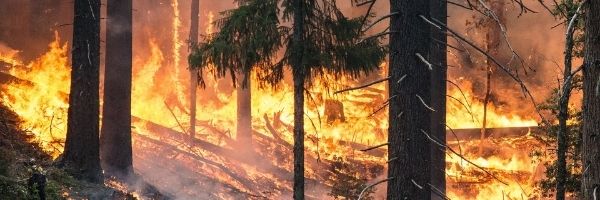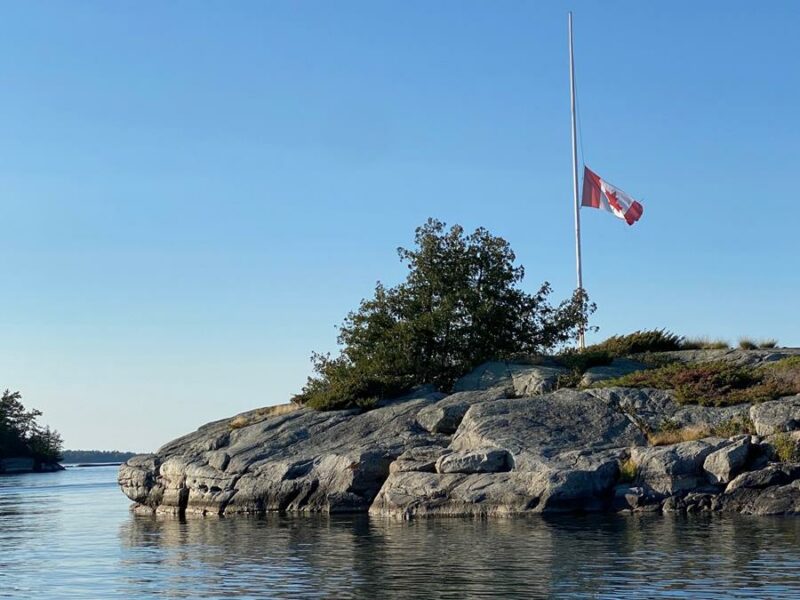Our Online Survey is now available – and we want to hear from you!
The survey was developed to provide an opportunity for both members and non-members in our community to share their views on the West Carling Association (WCA).
Your responses will assist the WCA Board in determining what we should keep doing, start doing and stop doing.
We want to hear from as many people as possible. We encourage you to share the survey link with your family members and neighbours.
The survey is anonymous. Only summary data will be shared. Results will be posted on our website and shared via email.

The Township received correspondence from the Ministry of Transportation Ontario (MTO) addressing the status of the rehabilitation of Highway 559 and the planned additional remediation work scheduled for this summer. View the "Update on the Hwy 559 Rehabilitation Project" Here

Today is about celebrating this special place we call home. It’s about doing our part, and taking meaningful action to protect the Biosphere in our backyard. These actions have a ripple effect: better planet, better health, better future. Check out our conservation guides for even more ways you can help! Conservation Guides

Dry Conditions Prompt Warnings for 2024 Wildfire Season in Canada Canada’s federal government is warning of the potential for another “catastrophic wildfire season”. In a press conference, the Canadian Emergency Preparedness Minister, Harjit Sajjan, said low snowpack levels and a forecast for warmer-than-average spring weather are combining to create high wildfire risk for much of the country. Southern Quebec, eastern Ontario and Western Canada were noted as particularly at risk. The map below shows the extent and severity of drought conditions across Canada as of March 31, 2024. So far April has brought snow and rain to Ontario which may temper some of the risk. Wildfire season typically runs from April 1 through October 31 annually. Read more about the 2024 wildfire predictions here. Get FireSmart materials and find out how you can mitigate your risk here.

We are pleased to invite you to RSVP for the H2O Symposium and private screening of the documentary film, All Too Clear. Watch the trailer here. Seating is limited, so RSVP today! May 11th, 2024 9am - 1pm The Royal Theatre 608 College St, Toronto, ON M6G 1B4, Canada Please RSVP Using The Access Code: GBF-RSVP RSVP HERE If you have any questions, please contact Amber at amber.gordon@gbf.org With support from two key donors, we helped fund the creation of All Too Clear, a documentary film that comprehensively explores the deep water structure and condition of Georgian Bay through state-of-the-art film-making techniques and scientific investigation. The filmmakers, director Zach Melnick and producer Yvonne Drebert, will be in attendance, as well as Georgian Bay Forever staff, and several of the scientific experts who contributed to the film. They will be participating in a panel discussion and Q&A from the audience.

Come out and help clear the trash from our roads. There will be a BBQ following the event at the Carling Community Centre. Please drop by the Township Office to pick up garbage bags, gloves and safety vests. When you are done collecting garbage, please leave the bags on the side of the road for township staff to collect. Thank you for helping us keep the Township clean! Click here for more information on Carling Clean-up Day

It is with great sadness that we report that Wally King passed away peacefully on March 25 at the age of 90. Wally was a true and loyal friend to the preservation of the Georgian Bay environment and a tireless advocate for protecting our precious ecosystem. As a long-time director and president of the Sans Souci & Copperhead Association and GBA, Wally inspired countless people to go the extra mile to do what they could for the Bay. Among his most notable and enduring achievements were his roles in reviving the Georgian Bay Association, which had ceased operations in the 1970s, and building it back up prior to the formation of the Township of the Archipelago and the Georgian Bay Land Trust, all of which have gone from strength to strength over the years. In his many travels throughout the east and north shores of the Bay, he met with and influenced so many of us. We will miss you, Wally! Read more about Wally’s legacy here. VIEW PAST eUpdate ISSUES

Did you miss the latest print edition of GBA UPDATE? Read the Spring Edition

On April 8, 2024 parts of Ontario will experience temporary darkness due to a Solar Eclipse. The eclipse is to start around 2:00 p.m. with a full eclipse approximately 3:20 p.m. The specific time and duration of the eclipse will depend on your location. Areas outside the path of totality will observe a partial solar eclipse. See the attached document for general information, travel tips and eye safety. View Solar Eclipse Safety Information Here

JOIN US in raising the funds needed to bring tomorrow’s healthcare to West Parry Sound TODAY
I have an invitation for you. I am writing today to invite your association to join in our Annual Your Health Your Way (Formerly, PS Walk, Run, Pole). As a seasonal resident on Lake Rosseau for 59 years, our family came to the cottage for decades, never thinking twice about local hospital care. That all changed June 2015. My husband became gravely ill, and his survival meant rushing to the West Parry Sound Health Centre. While I had been a great supporter of the Foundation, my husband became a grateful patient through the medical attention he received in the ICU. Now, our family is keen to give back in any way we can. This year, for the third year, I am chairing this Annual Walk Event reimagined as Your Health, Your Way celebrating the Rehab program at the West Parry Sound Health Centre. I’m asking you to join me in this awesome community event by either signing up your association as a team and/or forwarding this notice to your members.
You can sign up at www.LoveOurHospital.com. Together we can raise the bar on fitness and celebrate healthy lifestyle choices while supporting local care where we all live, work and play. This year’s event is a hybrid model, for the month of May you can challenge yourself or your team to set your own goal to MOVE daily in your own way - all modes count for tracking: walking, running, biking, kayaking - Your choice, Your way! The goal is to move and track our kilometres daily while securing pledges along the way. Every day we move, we get healthier. Every pledge we gather, we can move closer to our goal of raising $150,000 to support the purchase of an upgraded Bone Mineral Density Unit. Join in the challenge throughout the month of May and strive to meet your fitness goals.
Then, mark your calendar to join us at one or all of four Community Walk Events across our region, starting at West Parry Sound Health Centre on May 1st, Rosseau Nursing Station on May 7th, Whitestone Nursing Station on May 17th, with the finale at Pointe au Baril Nursing Station on May 26th. The goal is to engage you, your family and friends to Move to forward as A Healthier Community. To learn more about how you can join us visit: LoveOurHospital.com
Sincerely, Brett
Brett Lagamba
2024 Chair, YOUR HEALTH, YOUR WAY – Move for a Healthy Community
Your Health Your Way